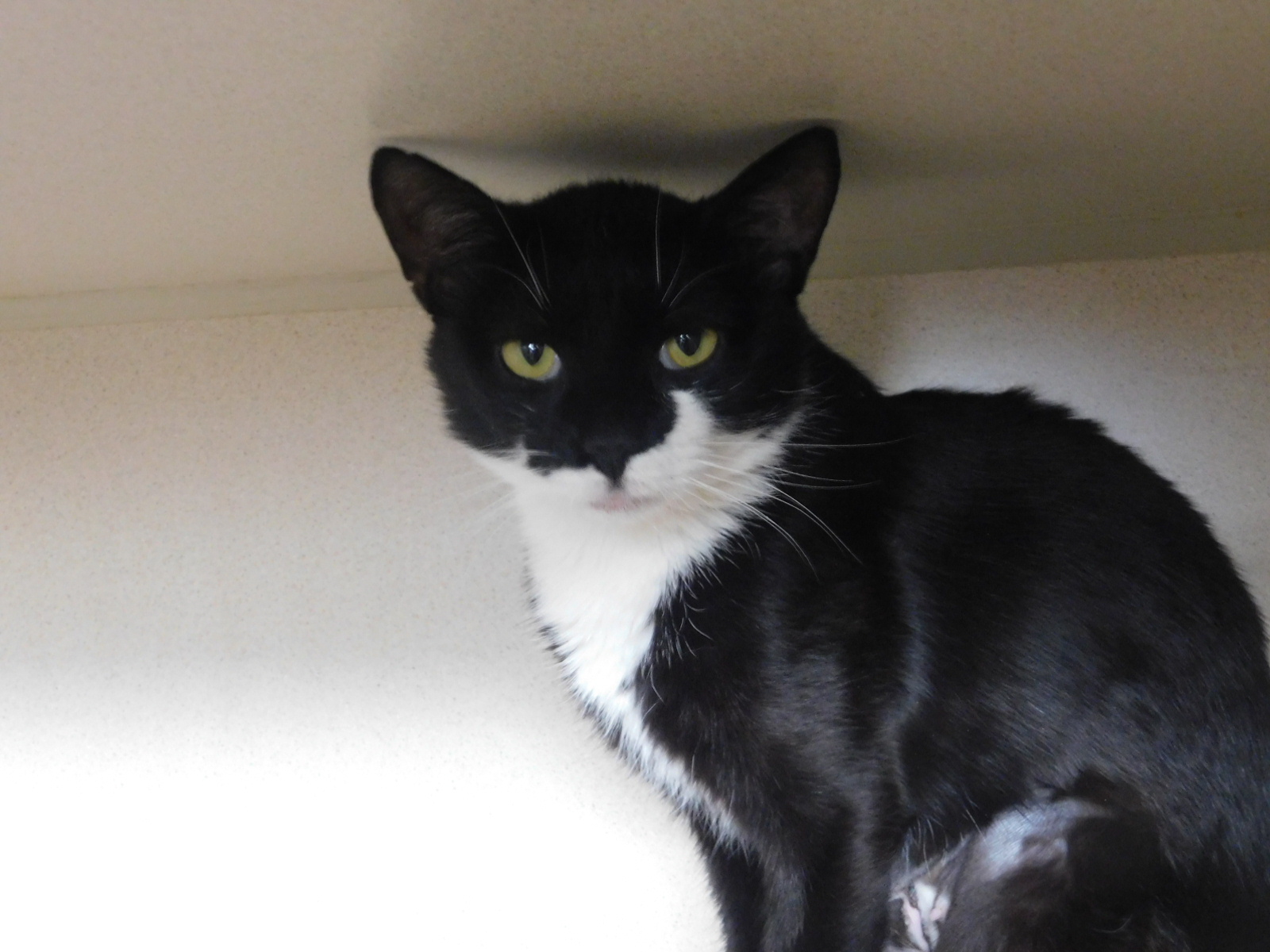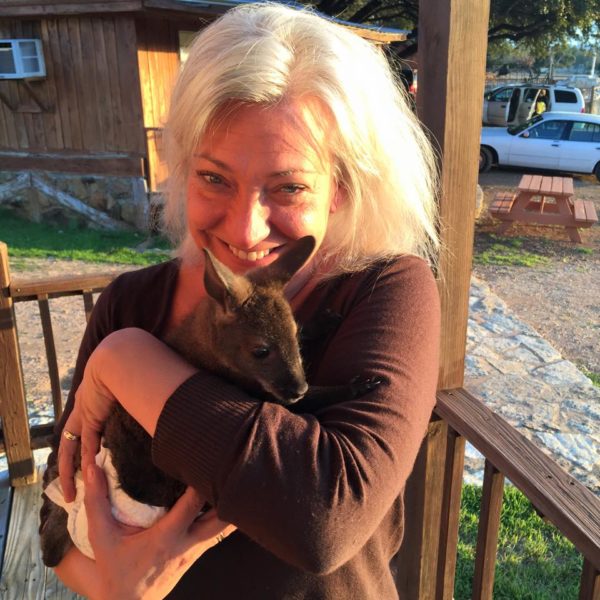
15 Aug Second Chance: Psyche of a Lost Cat
Hi my name is Penquin. As a formerly “lost cat,” I am wrapping up this Second Chance Humane Society Pet Column series on tips on how to find your lost pet.
I am following up last’s weeks “Psyche of the Lost Dog” with a little Freudian (or would it be Skinner?) look at how understanding cat behavior will help you to find a lost cat.

Penguin
Like dogs, lost cats also demonstrate distinct patterns of behavior, often different from our normal behaviors, making it harder for our people to find us. A cat’s behavior when lost will often depend on the lifestyle they lead. For instance, an indoor only cat will behave quite differently from an outdoor cat when lost.
As such, indoor-only cats are likely to be found very close to home; in fact, sometimes they are stuck or hiding inside the home: in the bushes, under the house, in a shed, under a deck, etc.
When they get out, indoor cats tend to be quiet and fearful and hunker down not even willing to emerge at the sound of their owner’s voice. Many cat parents have reported calling and shaking the food bag right next to where the cat was hiding, but there was no response. It was not until they physically looked in cat spaces that they found their cat laying just a foot away from them.
Outdoor-access cats are also typically found close to home, but farther than the indoor cat. The reason for an outdoor-access cat’s disappearance is usually that he is ill or injured, stuck, or has been displaced (chased by people, another pet, or a wild animal). “Curiosity killed the cat” is an unfortunately true adage . That personality trait leads cats to explore in places like inside a vehicle, in a tool shed or other building.
Sometimes outdoor-access cats, especially those who have been missing a long time, will turn up at other people’s homes or in colonies of free-roaming cats. They naturally look for things familiar and comforting to them like food, water, shelter, and other cats. This is why it is important for people who notice a new cat to ask around and check lost reports at their local shelter and not assume the cat was abandoned.
Some shy cats will hide for days or even weeks, so it is good to not give up your search.
The outgoing cat may be vocal and approach people, even following them home. Because of this, he may travel away from his own home and become disoriented and unable to find his way back. Such outgoing cats are in danger of being taken in and kept by finders who mean well, but assume the cat has been abandoned, so make sure you put effort into reporting and posting your lost pet everywhere (following the steps laid out at the beginning of this three-part Pet Column series on how to find your lost pet).
It feels great not to be lost anymore. Particularly since I was very pregnant when I was brought to Second Chance with my sister (who is also a young momma). I am about 1 1/2 years young with a lovely tuxedo coat. (And no, I don’t walk like a penquin.) My three babes are ready for homes of their own and so am I. Life is too short to be homeless – come meet me today.

Flower
If a dog is more your thing – come meet Flower, a beautiful Golden Retriever mix. Flower is about two years young. She arrived at Second Chance with other dogs from a hoarding situation. Although Flower is shy and timid, she does seek out loving affection from those she is comfortable with. She is still working on leash training and starting to enjoy walks and people. I have a feeling she will soon be teaching others the importance of stopping to smell the, umm, flowers…
Vetting the Vet: Dr. Michelle Dally, DVM, J.D. is Medical Director of Second Chance Humane Society. She also has a private practice, Dally Veterinary Medicine, 333 S. Elizabeth Street, Ridgway, Colorado. Her service area is San Miguel Mesas, Placerville, Ridgway, Ouray, and Montrose. For more on Dr. Dally, go here.

Michelle & Wallowby


Sorry, the comment form is closed at this time.